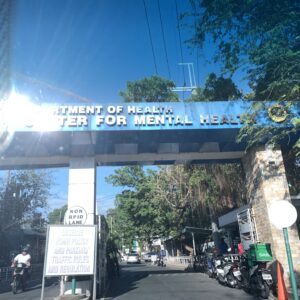
PISA Report Philippines -Abysmal performance on Reading, Math, and Science
Where’s the beef on the PISA report?
There was much hand wringing and breast-beating at the recent release of the 2018 Programme for International Student Assessment PISA report that shows the Philippines lagging behind 78 countries in Reading, Math, and Sciences. The PISA report is a study on 15-year-old students around the world “that assesses the extent to which they have acquired the key knowledge and skills to meet real-life challenges.”
The 2018 PISA results revealed that the Philippines scored 353 in Mathematics, 357 in Science, and 340 in Reading, all below the average of participating countries. In fact, we ranked 79th in Reading and Comprehension – a skill we pride ourselves in as Filipinos. Although the study took pains to note that 94% of the students who took the examination don’t use English as a primary means of communication, this is another point of pride that we’re an English speaking country.
For most of us the PISA report was not much of a surprise. They’ve been saying it all along that the education system is a mess. There’s the K12 issue which hounds us till now, there’s the continuing budget cuts on education, there’s the book scandals, and teacher scandals. corruption, teachers’ salary increase delay-the list seems to go on.
Disclaimer though, I feel like before you proceed reading, I must give you a proper warning. The PISA report has been much maligned before we even got into it. It’s been said that the PISA OECD data is pure horse crap and only creates an illusion of education quality. It’s a US analysis though and might be better taken in the context that it is lagging behind other OECD countries as well.
Anyway, beyond the obvious sad PISA result, what interested me most was how basic and obvious the context of these results are. I mean, do we actually need some international report to point out what we have known all along?
First, the economics…
The students are poor, the public school system is shit, and the government expenditures per student is the lowest among all the participating countries. It’s not a wonder that the private schools outperformed public schools in the study -they have better facilities and a better teacher to student ratio.
Can parents solve this?
When this news broke out on social media and got the expected noise. one of my friends pointed out that it doesnt take much to raise book- loving kids who can read and think critically. Just a few hours in fact. Have your kids read at least 15 minutes a day instead of playing on the cellphone, but them books instead of toys, have them listen to audiobooks, visit a library, etc. All the things you can envision a well aware, middle class, college-educated parent to do. I do these activities to stimulate my child’s mind and it’s not surprising that my child is ahead of her class in most subjects.
Sadly, these are things that an uneducated, poor, and backward parent just cannot think to do – even a well-meaning one. I’m not pitting the two against each other. But my experience as a mom in a rural public school has shown me moms on the other side of the social spectrum who are simply not capable (or maybe the right word is equipped) of teaching their kids beyond sitting with them and telling the kids to study. Moms (and some dads) sitting outside the school all day, waiting for their kids, proactively asking teachers about assignments -all things point to their dedication as a parent. Sadly, it still falls flat despite the effort.
And then, of course, there are the parents who are slaving away on their jobs just to be able to bring food on the table. Parents who might be educated enough to have the knowledge on how to stimulate their kids but simply cannot be there.
Like my friend who I think is a model mommy, they think of me as model mom with a naturally gifted child who takes after me. “Mana sa mommy“, they say. Far from the truth but it has become an accepted fact that intelligence is genetic and not raised.
Which brings me to shitty public school systems and even shitier government budget on education. My (kid’s) public school has no internet nor a computer, much less a functioning library. Even the leading public college in our place has no decent library.
Of course, my daughter can easily access the information required in a few clicks. But if my daughter can easily search the solar system and learn it on the internet, so should every other kid on the school. If my kid can build a maniature solar system with her available art materials, so should all the other kids. Learning tools should be available to all kids. Experiences should be available to all kids. If I can bring my kid to science trips, exposure trips, field trips, so should all the other kids.
I always get so surprised when I see learning materials on the internet using just simple Google searches. I kept thinking that if these apps, Youtube videos, Khan Academy, and Ted talks were available in my time, I would have been a better student. If my parents were rich and as educated then, maybe I would have had access to these learning experiences in forms of books and tutorials.
And not only the sciences but the arts too! I homeschooled for the past few years and I bought the kids all sorts of art materials for extra work. I gave them freedom to use the materials and I realized that most kids are actually very creative when given the right materials. And continuous exposure to them gives them confidence that they can do any art forms. I didn’t get that when I was little and like the Math and Sciences, I always thought that the Arts is a gift that is given only to the lucky ones.
Then, as now, there shouldn’t be any barrier for the kids without money to be able to learn anything. That’s how you bridge the gap. Not, as Cynthia Villar would have it, -to use the “carrot and stick” solution which will only increase the gap between the privileged students and the less privileged ones. Duh?

What the heck, Cynthia?
For sure, there are a lot of other points of failure in the education system, and there are a lot of nuances for the solution. But equality is still, and the first major thing to fix in the Philippine sad state of education. It’s staring right at us in the face.
Growth mindset and fear of failure…
I’ve read most of the Pisa report and one of the things that stood out to me is the part about the growth mindset and fear of failure in the average 15-year-old Filipino student today. This part is not included in the Deped Report but is covered in the original PISA report which can be downloaded here.
In most education systems, including the Philippines, students who hold a growth mindset (they disagreed or strongly disagreed with the statement “Your intelligence is something about you that you can’t change very much”) tend to report less fear of failure. In the Philippines, 31% of students hold a growth mindset, which is one of the lowest proportions amongst PISA-participating countries …
The kids don’t believe that they can do anything about their growth. This is such an astounding failure to transmit the very idea of the importance of education. In the study, only 31% of the students believe that if they study, they can change their intelligence. This is the lowest score among all of the countries that participated in the study.
With the growth mindset severely lacking, the fear of failure is also very prevalent with the kids saying they worry a lot about what others might think of them.
A majority of students in the Philippines expressed a fear of failure. Some 72% agreed or strongly agreed that, when they fail, they worry about what others think of them (OECD average: 56% of students). I
The study also outlines that our kids are reporting a high level of bullying in school.
in the Philippines, 65% of students reported being bullied at least a few times a month, compared to 23% on average across OECD countries; 26% of students (OECD average: 16%) agreed or strongly agreed that they feel lonely at school;
Where to, Philippine Education System?
The entire thing is a bit depressing and clearly we have so much to work on. Parents, teachers, as well maybe the entire academic and education system, the private sector, and the government needs to step up and solve this problem for the next decade.
If there’s any consolation, the PISA report can give us much to ruminate on and probably a step by step solution on how to do it which is exactly what the Deped report says in their recent press release.
Or not. Suddenly Im feeling very -very overwhelmed.

Hello! I am April
...I don't know exactly what a prayer is. I do know how to pay attention, how to fall down. into the grass, how to kneel down in the grass, how to be idle and blessed, how to stroll through the fields, which is what I have been doing all day. Tell me, what else should I have done? Doesn't everything die at last, and too soon? Tell me, what is it you plan to do with your one wild and precious life?
- That Summer Day. Mary Oliver Tweet










